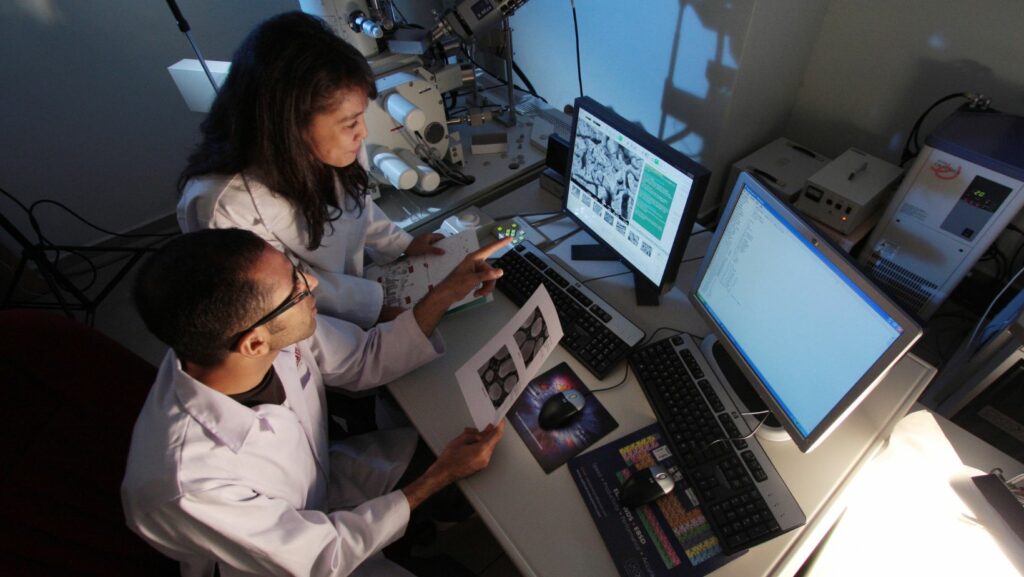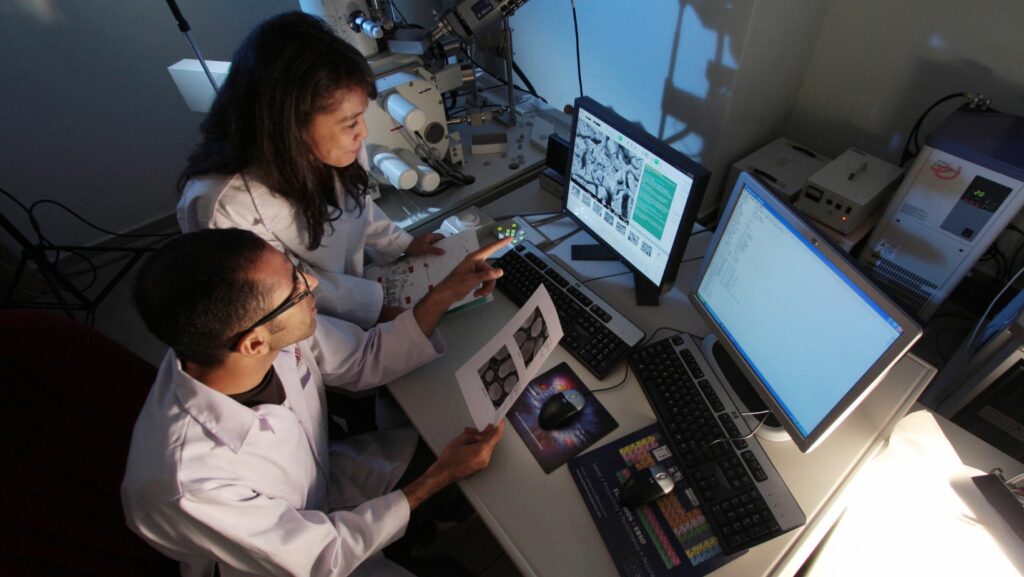”
Key Takeaways
- Real-World Experience: Industrial placements provide students with the opportunity to apply theoretical knowledge to live projects, enhancing practical skills in software development and systems design.
- Skill Development: Students refine critical skills, such as programming, project management, and teamwork, through hands-on participation in diverse industry projects.
- Networking Opportunities: Engaging in placements allows students to establish valuable professional relationships, gaining mentorship and insights that can lead to future job opportunities.
- Career Insights: Industrial placements equip students with a deeper understanding of workplace dynamics, industry trends, and expectations for various roles in computer science.
- Competitive Advantage: Completing an industrial placement can differentiate students in the job market, as employers highly value real-world experience when making hiring decisions.
- Challenges and Adaptability: Successfully navigating the balance between work and studies while adapting to workplace culture is crucial for maximizing the benefits of industrial placements.
In today’s competitive job market, gaining practical experience is crucial for aspiring computer scientists. Industrial placements offer students a unique opportunity to bridge the gap between academic theory and real-world application. These placements not only enhance technical skills but also provide invaluable insights into industry practices and workplace dynamics.
For many, an industrial placement serves as a stepping stone to a successful career in technology. Students can immerse themselves in projects that challenge their problem-solving abilities and foster professional growth. By collaborating with experienced professionals, they gain a deeper understanding of the industry’s demands and expectations, setting them apart from their peers.
Industrial Placement Computer Science
 Industrial placements in computer science offer crucial opportunities for students. These hands-on experiences facilitate the application of theoretical knowledge in real-world settings. Students engage in diverse projects, developing skills that enhance their employability.
Industrial placements in computer science offer crucial opportunities for students. These hands-on experiences facilitate the application of theoretical knowledge in real-world settings. Students engage in diverse projects, developing skills that enhance their employability.
Benefits of industrial placements include:
- Practical Experience: Students gain direct exposure to industry standards and practices. They apply classroom concepts to real-time tasks in software development, data analysis, or systems design.
- Skill Development: Key skills, including programming languages, project management, and teamwork, are refined through active participation in ongoing projects. Knowledge of tools and technologies widely used in the field is also acquired.
- Networking Opportunities: Students connect with industry professionals, establishing valuable relationships that can lead to future job opportunities. Networking fosters mentorship and guidance, which are instrumental in career growth.
- Career Insights: Through industrial placements, students gain insights into workplace dynamics and organizational culture. They learn about industry trends, expectations, and the demands of various roles in computer science.
- Competitive Advantage: Students who complete industrial placements often distinguish themselves in the job market. Employers value real-world experience, which can influence hiring decisions and salary offers.
Industrial placements serve as a significant bridge between academic learning and effective professional practice. Engaging in these placements equips students with essential tools for success in the evolving field of computer science.
Benefits of Industrial Placement
 Industrial placements offer significant advantages for computer science students, providing essential experiences that enhance employability and technical capabilities.
Industrial placements offer significant advantages for computer science students, providing essential experiences that enhance employability and technical capabilities.
Real-world experience gained during industrial placements exposes students to practical applications of their academic knowledge. Students work on live projects, using current technologies that align with industry standards. This hands-on experience develops proficiency in programming languages, software tools, and project management techniques. Additionally, students learn to navigate challenges typical in workplace environments, improving problem-solving skills and adaptability, essential traits for future employment.
Networking Opportunities
Networking opportunities during placements facilitate connections with industry professionals and peers. Students engage with mentors, gain insights into career paths, and seek advice on industry trends. Building a professional network fosters future job referrals and collaborations. These relationships often lead to internship offers or full-time positions post-graduation, significantly enhancing career prospects in the competitive job market.
Challenges in Industrial Placement
Industrial placements present unique challenges for students in computer science, requiring effective strategies to navigate work and academic demands while adapting to new environments.
Balancing Work and Studies
Balancing work and studies poses a significant challenge for students. Working full-time can strain academic performance, especially during exam periods. Students must prioritize tasks and create schedules combining deadlines for projects, study sessions, and work responsibilities. Time management becomes critical, as effective planning ensures that neither work nor academic obligations suffer. For example, setting aside specific hours for focused study time can enhance learning outcomes while maintaining work commitments.
Adapting to Workplace Culture
Adapting to workplace culture can create hurdles for students unfamiliar with professional environments. Each organization has unique norms, values, and communication styles that require adjustment. Students must learn to navigate team dynamics and establish rapport with colleagues. Engaging in open communication fosters positive relationships, while observing workplace behaviors helps students integrate smoothly. For instance, proactively seeking feedback from supervisors and colleagues can aid in understanding expectations and contributing effectively to the team.
Finding the Right Placement
Finding an appropriate industrial placement is crucial for maximizing the benefits of real-world experience in computer science. Students need to focus on critical strategies that enhance their application and interview processes to secure desirable placements.
Tips for Successful Applications
- Research companies: Identify organizations that align with career interests and values, looking for those known for their robust internship programs.
- Customize applications: Tailor resumes and cover letters for each position, highlighting relevant skills and experiences that directly relate to the job description.
- Showcase projects: Include academic projects or personal initiatives relevant to the industry, demonstrating technical skills and problem-solving abilities.
- Leverage networks: Use connections, such as alumni networks or professional associations, to seek referrals or insights that strengthen applications.
- Follow application guidelines: Adhere to submission requirements and formats to ensure professionalism and attention to detail.
- Anticipate questions: Prepare for common interview questions related to technical knowledge and behavioral competencies, focusing on articulating past experiences and learnings.
- Practice coding challenges: Hone coding skills through platforms like LeetCode or HackerRank, as many employers incorporate technical assessments into the interview process.
- Understand the company: Research the company’s mission, products, and culture to demonstrate genuine interest and preparedness during the interview.
- Develop questions: Prepare thoughtful questions to ask the interviewer, showcasing interest in the role and the organization’s culture and projects.
- Dress appropriately: Choose professional attire suitable for the industry to convey confidence and attention to detail.
Industrial placements are invaluable for computer science students aiming to enhance their career prospects. These experiences not only provide hands-on skills but also foster essential industry connections. By engaging in real-world projects students can significantly improve their technical abilities and gain insights into workplace dynamics.
Navigating the challenges of balancing work and study is crucial for maximizing the benefits of these placements. With effective time management and open communication students can thrive in their roles. Ultimately, the right industrial placement can set the stage for a successful career in the ever-evolving tech landscape, making it a worthwhile investment for aspiring professionals.
“



